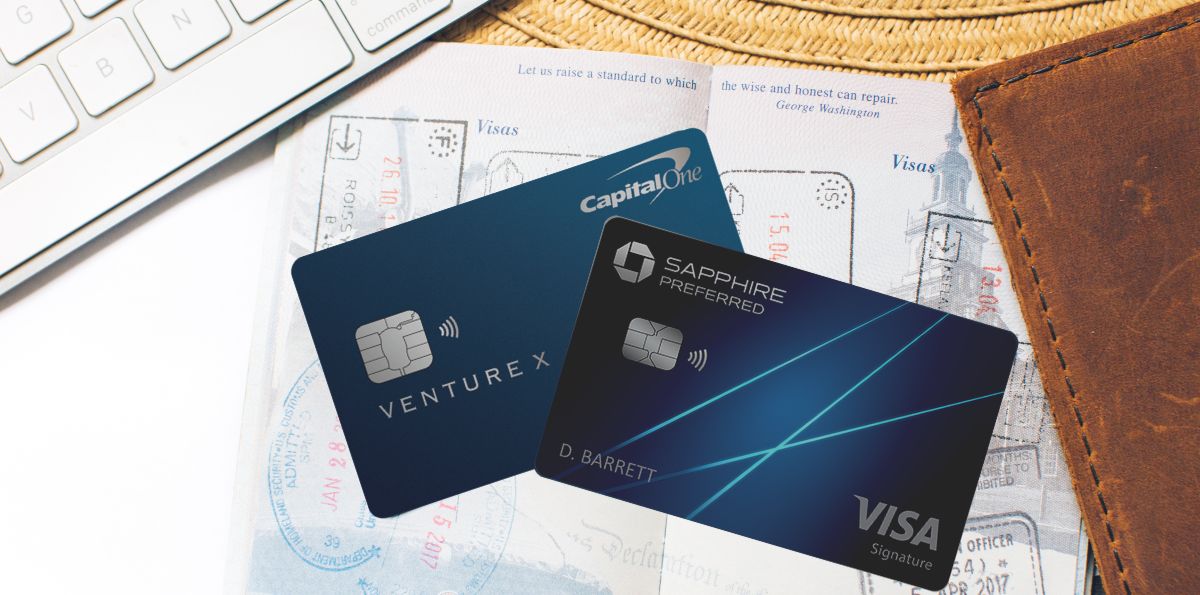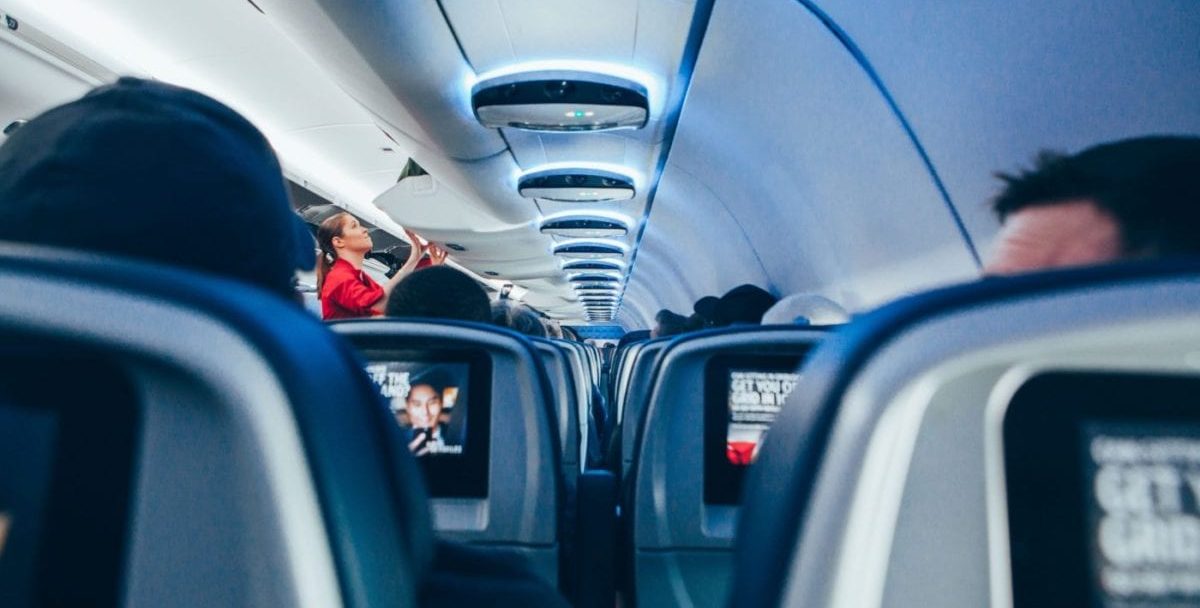Airlines and credit card companies are in an arms race for customers, using ever-increasing welcome bonuses to lure in more travelers and keep profits churning.
But with each new record-setting bonus offer, the points you're earning are getting less and less valuable. You can call it a devaluation and get mad at the airlines and hotels all you want but in reality, we have the banks to thank for this.
Look no further than The Platinum Card® from American Express for proof of what I mean. At one point, not that long ago, this card carried an annual fee of $450 and came with a respectable 60,000-point welcome offer. Nowadays the card costs $695 per year (see rates & fees) and comes with a bonus of up to 175,000 points … depending on where you apply.
And even with a nearly $700 price tag, this card's never had a home in more travelers' wallets than it does right now. Thanks in large part to social media influencers and (admittedly) sites like ours, using points and miles to fund lavish vacations isn't the once-niche hobby that it used to be – it's gone mainstream.
As more and more points have flooded the market due to these huge credit card offers, airlines and hotel chains have responded by raising the award rates to book their seats and rooms for free. In isolation, each increase feels like a painful targeted devaluation. But zoom out for the big picture and it’s inflation … for credit card points.
Here's the scoop on how banks are causing your points to become less valuable.
Sign-Up Bonuses Keep Getting Bigger
I'll let you in on a little secret: Travelers like you and I aren't the airlines' and hotels' customers, we're the product. We get sold to the banks in exchange for big, big bucks.
And what do we get in return? Monster credit card sign-up bonuses and the promise of “free” travel. Don't get me wrong, I've benefited plenty from this relationship and welcome the opportunity to earn a big, new card welcome offer at every turn.
Much of this started with the pandemic: With travel at a near halt, several things happened that led to more rapid award program devaluations than ever before.
When commercial air travel was at a standstill, airlines mortgaged their loyalty programs to stay afloat. In doing so, they pre-sold the banks millions and millions of points and miles for a quick influx of cash.
At the same time, travel rewards credit cards were a hard sell – with so many travel restrictions in place and no real end in sight, the typical sign-up bonus was no longer enough to get travelers to bite. On top of that, the banks were ultra-cautious with whom they approved for a new card, and rightfully so.

So what did the banks do with all these points and no one traveling? They raised new card welcome bonus offers to levels we'd never seen before.
What was once a standard 60,000-point welcome bonus on *amex platinum* went up to 80,000 points for new cardmembers who can spend $8,000 in the first six months, but it's often possible to earn a 100,000-point bonus … or even higher. Co-branded cards, like the Delta SkyMiles suite of cards, also saw some of their biggest-ever welcome offers coming out of the pandemic.
Meanwhile, Chase upped the ante with its popular *chase sapphire preferred* to 80,000 points … and then followed it up a few months later with a 100,000-point offer – a bonus so good, we're unlikely to see it ever again. Considering the standard offer on the Sapphire Preferred sits at 60,000 points, both offers were enticing enough for many travelers to get off the sidelines and add a new Chase card to their wallets.

This started an irreversible trend of bigger and bigger welcome offers that we haven't seen slow up yet. Once you open pandora's box, there's no going back. With banks constantly looking to one-up each other and Americans – particularly the “premium travelers” that banks lust after – hooked on bigger bonuses, how could they?
Sure, the *venture x* debuted with a bonus offer of 100,000 Capital One miles that we may never see return again – but it also set the bar for what a new “standard” offer should be by settling in with a 75,000-mile bonus after spending $4,000 in the first three months. The fact that the bank even raised the regular *capital one venture card* to that same mark just goes to show that the landscape has changed. A 50,000- or 60,000-point bonus simply doesn't move the needle anymore.
All of this is to say that with the banks using bigger and bigger offers to lure customers back in following the pandemic, a new standard has been set for what a welcome offer bonus should be. In turn, the airlines and hotels are responding to this glut of points and miles by increasing rates, almost universally, across the board.
Read more: The 10 Biggest Credit Card Offers … Ever!
Do Devaluations Really Matter?
We've seen it repeatedly, loyalty programs take travelers' favorite sweet spots and kill them off, one by one. In some cases you'll merely see the airline or hotel chain reshuffle the award chart – the cheat sheets used to determine what a free flight or hotel night will cost. Other times they do away with the chart altogether and move to a dynamic pricing model, leaving them free to charge whatever they want.
It's like inflation for frequent flyer miles: Airlines have raised award rates to offset the influx of points. Here's a sampling of what we've seen recently:
- United Airlines repeatedly raised mileage pricing last year and recently began doing it again for other routes across the globe this year.
- The sweet spot-laden ANA Mileage Club finally raised award rates this spring on many of their best premium cabin redemptions.
- Turkish Airlines was once a hidden gem for travelers looking to fly business class to Istanbul (IST) and beyond, as well as for those looking to stay closer to home with United, but this sweet spot was soured earlier this year with rates going up by as much as 100%.
- Emirates, Virgin Atlantic, Alaska Airlines, and countless other airlines have all raised award rates on some of their best redemptions within the last year or so, too.
With each price hike, travelers (ourselves included) have cried foul. But with record-high credit card sign-up bonuses, does it really matter?
The answer largely depends on how you're earning your points and miles. If you're opening a new travel card or two every year whenever the banks offer these big, limited-time bonuses, you're much less susceptible to these sudden devaluations.
On the other hand, if you're earning your airline miles and hotel points the old-fashioned way, by actually traveling, these sudden price hikes will be a lot more painful. Gone are the days of earning enough points and miles from work travel to be able to afford an annual vacation for the whole family – now business travelers will need to earn additional points through credit card sign-up bonuses and spending.

This is exactly what Delta showed us they care most about with their unpopular SkyMiles program changes last fall.
It also reinforces the importance of leaving your favorite U.S. airline's credit card in the drawer – not swiping it everywhere you go. Earning transferrable credit card points at least gives you a fighting chance when there's a devaluation because you can always pivot to a loyalty program with better options.
Again, all this goes to show who the airlines' and hotels' real customers are: The banks. By prioritizing the financial institutions buying points and miles in bulk over travelers, they don't even bat an eye when making these frequent and abrupt changes. But if you're the type of traveler who benefits from these ever-growing sign-up bonuses, it might not really matter.
Read more: Quit Charging Everything to Your Favorite Airline’s Credit Card
Bottom Line
In a classic case of – “What came first, the chicken or the egg?” – it's quite clear that the all-too-frequent airline and hotel program devaluations are a direct result of the ever-growing credit card sign-up bonuses we crave.
If you're a traveler still earning points and miles the old-fashioned way – by flying with the airline or staying loyal to a particular hotel chain – these constant award chart changes undoubtedly sting. Diversifying your points and miles is more crucial than ever if you want to travel for free.